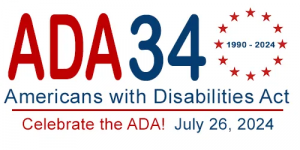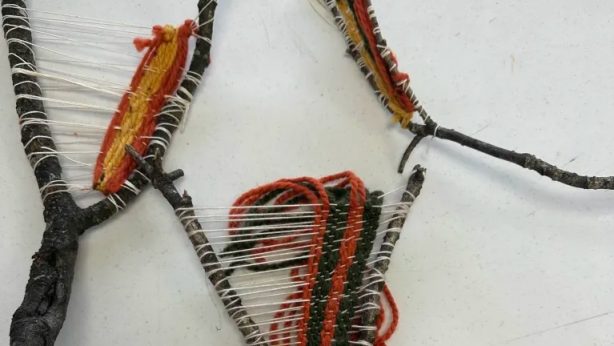Honoring the Anniversary of the Americans with Disabilities Act
July 26 marks the anniversary of the American with Disabilities Act ADA. Let’s celebrate National Disability Independence Day by finding ways to ask ourselves: How can we create inclusive learning spaces in our homeschool community?
According to the official Americans with Disabilities official website, ADA.gov,
The Americans with Disabilities Act (ADA) is a federal civil rights law that prohibits discrimination against people with disabilities in everyday activities. The ADA prohibits discrimination on the basis of disability just as other civil rights laws prohibit discrimination on the basis of race, color, sex, national origin, age, and religion. The ADA guarantees that people with disabilities have the same opportunities as everyone else to enjoy employment opportunities, purchase goods and services, and participate in state and local government programs.¹
The history of the legislation is monumental in global history, built over decades by disabled leaders, leaders with disabilities, advocates, and allies working to uphold human rights, compassion, and equal protections under the law. Major monumental milestones included building regulations for accessible ramps, curbs, and doors and legislation that protects folks from discriminatory job firings or barriers to employment. ADA is also the greatest protection for access for disabled persons and persons with disabilities into accessing community spaces and programs. As federal legislation, it came into law with support of state legislatures and grassroots lobbying. It is a community driven legislation that stretches from the tiniest county to the largest city in the United States and its territories.

The history of the ADA did not begin on July 26, 1990 at the signing ceremony at the White House. It did not begin in 1988 when the first ADA was introduced in Congress. The ADA story began a long time ago in cities and towns throughout the United States when people with disabilities began to challenge societal barriers that excluded them from their communities, and when parents of children with disabilities began to fight against the exclusion and segregation of their children. It began with the establishment of local groups to advocate for the rights of people with disabilities. It began with the establishment of the independent living movement which challenged the notion that people with disabilities needed to be institutionalized, and which fought for and provided services for people with disabilities to live in the community.²
The ADA has ensured that individuals with disabilities can safely access community buildings, community centers, parks, and recreation facilities that many homeschoolers regularly access. ADA educational supports also allow homeschool learners access to their county’s
public school educational supports such as: speech therapy, occupational therapy, and special education sessions for literacy specialized instruction and writing supports (to name a few). There are limits to ADA, so I hope that we can honor the anniversary of the passing of the ADA by finding ways to do better in our homeschooling communities, including here at VaHomeschoolers.
Here are a few action steps you can consider in celebration of the anniversary of ADA:
1. Think about opportunities to implement ADA accessibility. For example, is parking accessible at your co-op meeting location? Are there disability access spaces that accommodate vans and wheelchair loading and unloading with ease? Does the building have ramps and elevators to floors where activities occur? Do we have safety plans for learners who elope (run off or evade into, say, parking lots or drift unsafely beyond the group)?
2. Ensure more inclusion and access for more folks in community learning environments, homeschool groups, co-op spaces, and activities. For example,are there reduced or free financial assistance for activity fees/participation requirements for families for whom disabilities create a financial burden?
3. Consider alternative options for disabled parent participation requirements in co-ops. For example, can a disabled parent with, say, chronic fatigue, be excused from mandatory hall duty while co-op classes are in session? Can disabled supports be accessed in participatory requirements? This is a question for those who have co-ops where a parent must volunteer for a specified amount of hours for their learner to access homeschool classes/activities. Often, we make access accommodations and modifications for disabled learners, but we may not make those same accommodations with parent volunteers/parent participants in co-op environments.
4. Create inclusive presentations and communications. Think about what your homeschooling group/co-op is presenting to the general public. For example, on flyers or websites, include many different body shapes, races, ages, and disabilities. Consider supporting a communication pipeline where parents and learners can raise concerns or questions around disability and needs.
5. Revisit your homeschool group/co-op’s mission statement. Is your organization committed to inclusion and eroding access barriers? Are conversations around reducing barriers taking place? Is the group committed to active and regular change to do better?
★ Bonus: Ask each individual if they prefer identity first language or people first language. For example, do they prefer “person with autism” or “autistic person” or something else entirely? This is also important when discussing preferences in how a child or teenager prefers to identify and be identified. Identity changes, so it’s always kind to check in and ask, “How do you identify? How can we introduce you to our co-op group?”
Honor where your group is today and make a commitment to doing better now and in the future. Consider regular and constant work of supporting and advocating for the rights of disabled people and people with disabilities as a practice to improve accessibility and inclusivity in your area and in the world.
Disability advocates have laid a solid foundation. What will you build with it in your homeschool community?
References
1. Introduction to the Americans with Disabilities Act Page at ADA.Gov Webpage, (https://www.ada.gov/topics/intro-to-ada/#the-ada-prohibits-disability-discrimination-in-many-areas-of-life accessed July 13, 2024).
2. “The History of the Americans with Disabilities Act: A Movement Perspective,” Arlene Mayerson, 1992. (https://dredf.org/about-us/publications/the-history-of-the-ada/ accessed July 13, 2024).
This article was written by Sarah Blunkosky and Josie Blunkosky, and it was edited by the Public Relations Committee. Sarah Blunkosky MA, C-IAYT is an integrative education coach, certified yoga therapist, academic historian, and loves the healing tools of research, writing, and the wisdom of movement/embodiment. Sarah homeschools/helps manage three kids’ learning lives, and her eldest Josie Blunkosky is now an 18 year old self-advocate with Down syndrome and autism. When she’s not working or momming, you can find her in a library, museum, or at the movies. We’re glad to have her as a volunteer for The Organization of Virginia Homeschoolers.
Opinions expressed by individual writers in this blog do not necessarily reflect the views of the Board of Directors of The Organization of Virginia Homeschoolers, nor do they represent an official position of VaHomeschoolers. Writers’ views are their own, and readers are encouraged to research and explore homeschooling issues to their own satisfaction.


